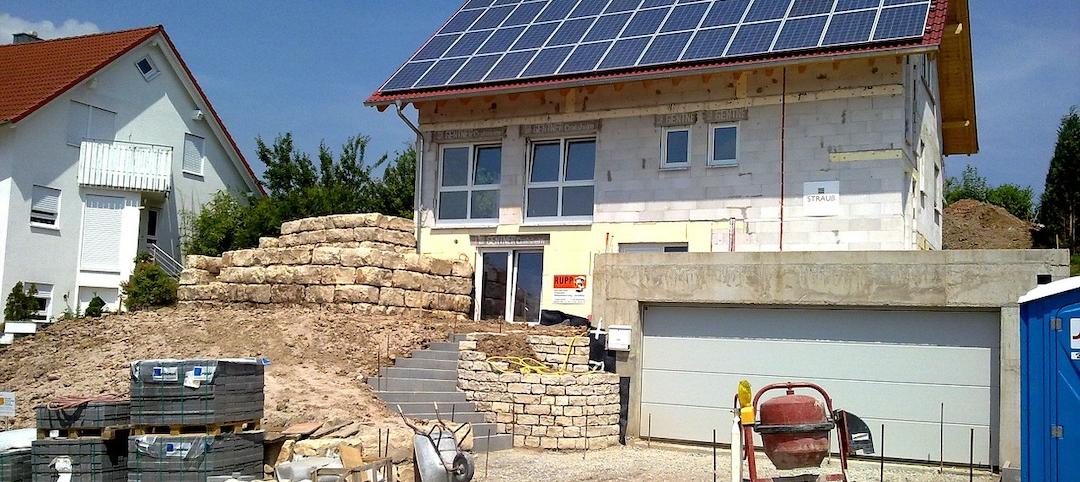Several real estate organizations, including the National Multifamily Housing Council (NMHC), have joined forces to urge Congress to fully fund the 2020 Census and the annual American Community Survey (ACS) in its 2016 budget, which lawmakers are currently debating.
Developers, builders, and contractors rely on these government data to gauge, among other things, changes in population demography and mobility, factors that play major roles in planning and construction plans.
Last year, the industry dodged a bullet when Congress failed to approve a measure that would have made participation in ACS voluntary. “This would have reduced the survey’s accuracy and made it more costly by requiring additional effort to ensure a representative sample,” NHMC states on its website. The Council notes, too, that the industry wants Congress to restore three-year data collection methods that got changed last year.
In its 2016 budget, the Obama Administration is requesting $1.5 billion for the Census Bureau in fiscal year 2016, including $663 million for the 2020 Census (a 91% increase over the previous Census budget) and $257 million (plus $15 million) for the ACS, according to the Census Project, a collaboration of state and local governments, advocacy and business groups, and research organizations interested in a fair and accurate census. Obama is asking Congress for an extra $1 billion for hiring and promotion for the decennial count, after plans to automate door-to-door interviewing in the 2010 Census failed to muster Congressional support.
Population data are of critical importance to municipalities, too. The Arizona Republic reported last month that the city of Chandler, Ariz., will pay the Census Bureau more than $4 million to conduct an updated population count for that metro later this year. Chandler is hoping that the new count will show how its population has increased significantly since the 2010 Census, which put Chandler’s population at 236,326 residents. (Arizona allocates state-shared revenue based on a city’s population.)
The Census Project notes that the Bureau is trying to save as much as $5 billion over the census lifecycle by investing early in research, testing, and development of new methods and technologies. For example, later this year the Bureau plans to hold focus groups with people who would be affected by a new classification being considered for Americans of Middle Eastern and North African descent. The 2013 ACS—with a sample size of 3 million addresses nationwide—estimated that there were about 1.5 million Arab Americans in the U.S. in 2006-10. If this test proves successful, the new classification could be included in the 2020 Census, according to the Associated Press.
Related Stories
Codes and Standards | Oct 28, 2021
Design competition launched to show role of mass timber in decarbonization
Forest Service and Softwood Lumber Board will award $2 million in grants to winning teams.
Codes and Standards | Oct 27, 2021
Texas reforms series of contractor laws
Measures seen as making it easier to do business in the state.
Codes and Standards | Oct 26, 2021
Drownings during Hurricane Ida point out FEMA flood map flaws
Eleven people drowned in New York City in areas marked as low risk.
Codes and Standards | Oct 26, 2021
Dept. of Energy’s REScheck tool updated for the 2021 International Energy Conservation Code
Previous version incorporated 2018 code.
Codes and Standards | Oct 20, 2021
New York City passes overhaul of construction codes
Over 600 major changes along with thousands of smaller updates slated for 2022.
Codes and Standards | Oct 20, 2021
One-quarter of U.S. critical infrastructure at risk of failure due to flooding
Police and fire stations, hospitals, airports, and wastewater treatment facilities face threat.
Codes and Standards | Oct 19, 2021
Pittsburgh enacts first-in-the-nation “Dark Sky Lighting” law
Applies to all city parks, facilities, and streetlights.
Codes and Standards | Oct 15, 2021
New Calif. law mandates use of lead-free plumbing fixtures
Must meet NSF/ANSI/CAN 61-2020 in 2023.
Codes and Standards | Oct 14, 2021
Building industry leaders urge governments to boost emissions reductions targets
Scores of large AEC firms and organizations sign letter to UN’s COP 26 group.
Codes and Standards | Oct 13, 2021
FEMA’s new flood insurance plan will sharply raise insurance costs for seaside properties
Risk Rating 2.0 will have more accurate assessment of flood risk.

















